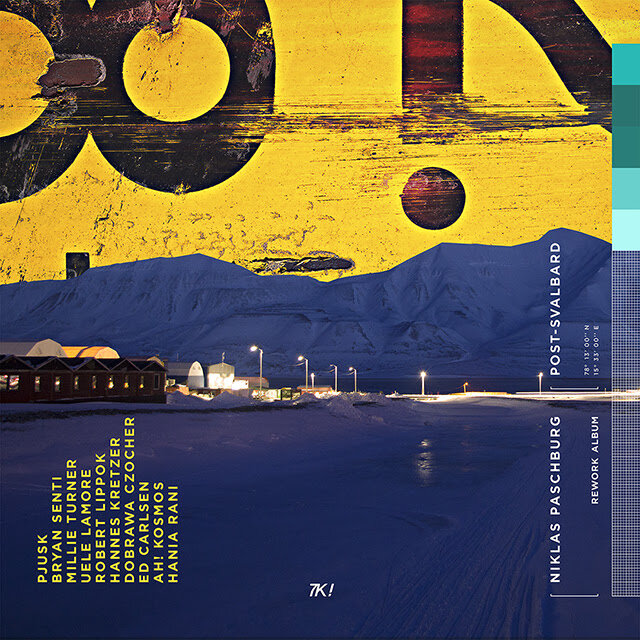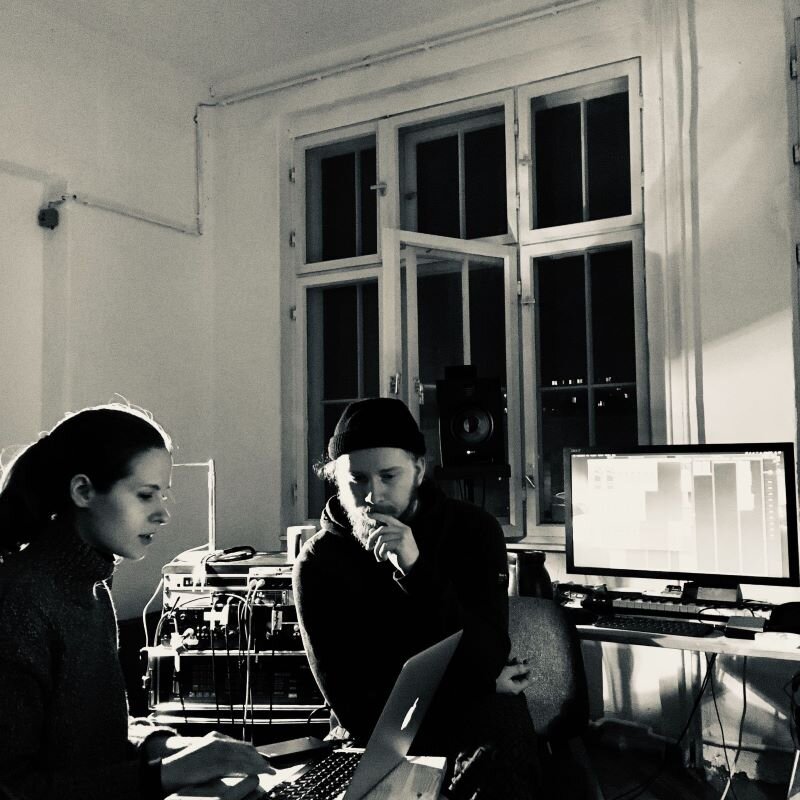NIKLAS PASCHBURG'S atmospheric inspirations
Photo by Natalia Luzenk
Niklas Paschburg is a German pianist, composer, and producer born in Hamburg but currently based in Berlin. At four years old he began to play around with the piano at his grandparents’ place, at age five he asked to start taking lessons. Fast forward to 2014 and Niklas released his first single “DAWN”, followed by the EP Tuur Mang Welten.
In 2018, after spending time in the forests of southern Germany and on the Baltic Coast, he released his debut album Oceanic via 7K!. The record received critical acclaim across the board including NPR Music and The Guardian, as well as synchs for a variety of brand and independent film projects.
In this interview, Niklas discusses his latest release, Post-Svalbard, a reworking of the original album with new contributions from singers Hania Rani, Millie Turner, avant-garde musician Robert Lippok, and many more.
Interview by Tyler Nesler
Post-Svalbard is an ambitious reworking of your 2020 album Svalbard. You were unable to tour with live performances of material from the album due to last year’s pandemic lockdowns, and what began as “a project which was initially planned as a short series of remixes” evolved into this full-scale album rework. In what key ways do you think that your inability to perform the original material live fueled your ambitions to fully rework the album? Do you think this project would have ever happened without the tour cancellations?
I don’t think I would have done this whole rework album if everything was normal last year. So the tour cancellations played quite a big role in the process. I never expected to release an album and then not be able to play it live. So the rework album was a way for myself to process this. Since we’ve all been quite isolated last year, it became also a way to socialize with other artists and collaborate more and more. Not forgetting that it’s also a lot of fun to exchange a creative process and work on songs with different artists.
Post-Svalbard, 7k!, 2021
You collaborated for the first time with a singer (Millie Turner) on the reworking of the track “Bathing in Blue.” How closely did you work with Millie on the process (i.e., lyrical content and singing style)? What were some good surprises and also some challenges for you in regard to working with a singer for the first time?
The big surprise on this collaboration with Millie Turner was that she just nailed everything with the very first demo take she sent over to me, and we did not change anything after that.
In the beginning of the collaboration I just sent Millie the track file and did not gave her any comments or instructions. I wanted to access her totally free creative space where Millie could get inspired and move into any direction. When she sent over her vocal parts, the only thing I had to do was adjust the instrumental to her voice, changing a few sounds, and do a new mix. But basically that was all I did. It was the most fluent and easiest collaboration I’ve ever done. And since I discovered on this collaboration that it really works to combine my music with a singer, it inspired me to go even more into this direction in the future.
You also worked with the Polish singer, pianist, and composer Hania Rani for newly added vocals on “Winter Born.” In what ways was this process similar to or different from your work with Millie Turner on “Bathing in Blue?”
It actually was quite the same process with Hania Rani as the one with Millie Turner. I also gave Hania the track without any instructions, and she sent over her beautiful vocal part and nailed it again in her first take.
The first demo take I received from her was recorded on an iPhone just to quickly send over the ideas. We both felt in love with that version and take, so that it was impossible to recreate the same take in the studio.
So what you actually hear was recorded on a phone, but don’t tell anyone ;)
Hania Rani and Niklas Paschburg - photo by Jarno Carlo
Many of these reworks explore the boundaries between ambient and hip hop, especially your own remixing of the track “Arctic Teal.” What appeals to you most about adding new layers of contemporary sound and style to what was originally a sparser and more classical composition? How do you think reinterpreting your own work may differ for you personally than having other producers involved in the remix?
The rework I did on “Arctic Teal” was an inner wish I’ve had for a long time. When I was fourteen years old I started to produce hip hop beats on my computer. That’s how I started to dive into music production.
When I was around eighteen years old I turned my back to hip hop and stopped producing beats and went more into the music production I’ve done the last couple of years. So combining hip hop with ambient/classical compositions is a way for me to revisit the younger days in my life where I was into hip hop a lot.
In general I’m very curious to mix different genres, especially when you would not really expect them to appear on the same track.
Specific locations and their atmospheres have served as crucial inspirations for your work to date (such as the remote Norwegian archipelago Svalbard, where you initially worked on the first version of the album Svalbard, and the German Baltic Sea settlement of Grömitz, where you worked on your first album Oceanic). Did you spend much of your time during the pandemic lockdown in a specific inspirational location which influenced your supervision of these reworks, or were you mostly working in a studio or more urban/artificial environment?
During the first lockdown I went home to my family in Hamburg and spent almost two months there with an improvised studio. That definitely helped me, especially since no one really knew during that time what was going on in the world and I’d lost inspiration in the first weeks. It was kind of a place to escape, being surrounded by your loved ones and being able to find new inspiration. The rest of last year and also this year, I’ve spent most of my time in my studio in Berlin.
So both places — the calm side of Hamburg and my urban studio in Berlin — definitely influenced the supervision of the Svalbard reworks.
German avant-garde pioneer Robert Lippok reinterpreted your track “Season Shift.” What was it like to work with someone with such an extensive background in experimental and innovative music? What were some of the elements he brought to the reinterpretation which excited or surprised you?
It was such an honor to have been able to work with Robert Lippok. We had a nice Zoom video chat about reworking the track and it was an absolute pleasure to exchange thoughts and hear Robert’s insights of the creative process. We also wanted to meet in his studio to work together on the rework but because of the lockdowns we were not able to meet in person. But I’m sure we are gonna catch up later at some point.
I’ve really felt in love with his rework and sounds. It showed me one more time that you can have a big impact with minimal sound design and create a completely different world.
You also worked directly with cellist Dobrawa Czocher and ambient producer Harnes Kretzer on the rework of “Opera,” which has been called “a piece that perfectly encapsulates the trio’s different worlds.” In what unique ways do you think the elements brought by yourself and Dobrawa and Harnes worked to so harmoniously combine the different approaches they each contributed to the effort?
I think all three of us feature the same core of love for ambient music. But each of us expresses this core in a different way, that’s why all of us have a different world in our music.
When we started to collaborate on “Opera” together, I could really feel that everyone brought their own world into the track and we all met at the core of that world, which is ambient.
Post-Svalbard is available now.
You might also like our interviews with these musicians:
Tyler Nesler is a New York City-based freelance writer and the Founder and Managing Editor of INTERLOCUTOR Magazine.
Main page photo by Natalia Luzenk








